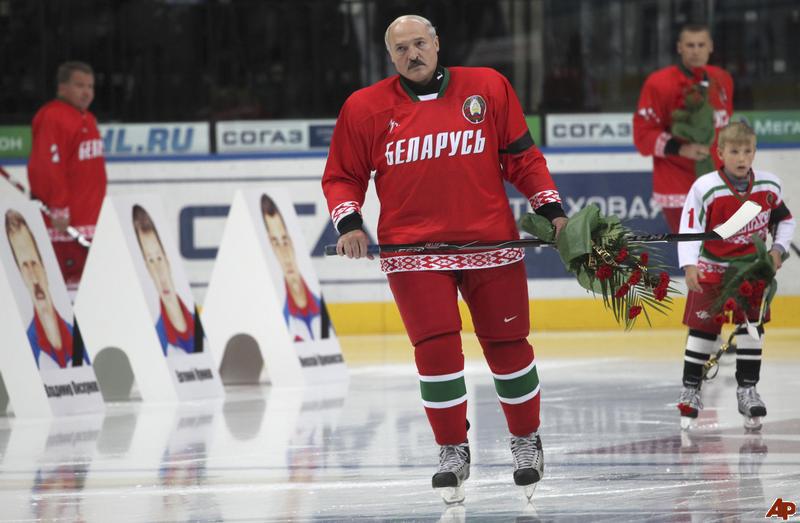14 Mar 2023 | Afghanistan, News and features, Uncategorized
Index is in contact with a number of Afghan journalists forced to flee their country after the Taliban takeover. In danger because they exercised their freedom of speech through their work, they are now all refugees. Below is a message we received from one of them, Afghan sports journalist Saeedullah Safi, following the recent Gary Lineker row:
As a sports journalist from Afghanistan, I have been following Gary Lineker’s work with great admiration, and I am writing this message to publicly express my gratitude for his efforts to support refugees.
Gary Lineker’s dedication towards providing facilities and support for refugees is truly commendable. His passion for advocating for their rights is an inspiration to all of us who share the same goal of creating a better world for everyone.
I personally know how difficult migration can be, as I have been stuck in Pakistan for a year after leaving Afghanistan to pursue my dreams in the hope to reach a final destination. Lineker’s work gives me hope that more people like him will continue to work toward creating a better future for refugees.
On a personal note, I am also a fan of Manchester United and I hope to one day cover them closely. On and off the field Lineker has made a tremendous impact on the world, and I am honoured to have the opportunity to publicly thank him.
Once again thank Gary Lineker for his incredible contributions and for being a true advocate for refugees.
14 Aug 2014 | News and features, United Kingdom
Top flight football is back! Back! BACK! After an agonising entire month since the World Cup Final with nothing to sustain people but the made-up soccer tournaments designed to draw American crowds, and the Commonwealth Games, and the England India cricket tests, the people of Britain can relax, and fall trustingly into the loving arms of the Premiership.
Once more, it will be deemed legitimate to spend Saturday afternoons in a pub, watching other men watching football; once more we can spend Saturday nights complaining about Mark Lawrenson and Alan Shearer’s dull observations on Match of the Day; once more Arsenal will be a little disappointing.
I say “once more” but of course the football never really ends, it just sleeps for a few weeks every year. But now it is awake.
At this point, fans of leagues that are not the premiership will be pointing out that their leagues started last weekend, and they’re right.
And what was the main story from the (non-Premiership) Football League this week? The news that Millwall fans had upset their Leeds United rivals with a new chants about serial sexual abuser Jimmy Savile, a Leeds native. Not to exactly repeat it, but the chant essentially suggested that Leeds fans may be the offspring of Savile.
Milwall’s manager Ian Holloway criticised his own fans, saying: “Let’s stop and think about what [Savile] has actually done. That’s the most important thing and we don’t see that. ‘Oh, it is a bit of banter’. It isn’t funny, is it? I don’t think so.”
Now clearly, some Millwall fans did find this funny. Or they found the idea of offending Leeds fans funny. Because offending the opposition has for a long time, been part of going to football.
My home team, Cork City, who play in Ireland’s Airtricity League, have a pretty good relationship with Derry City. Derry, despite being based in Northern Ireland, play in the Republic’s league. Their fans are mostly nationalist rather than Unionist, and they are a widely respected group , admired for travelling long distances in large numbers to support their team, and making a lot of noise when they get there.
In spite of all this admiration, Cork fans greet Derry fans, who have literally travelled the length of the country, with the chant “What’s it like to have a Queen?” a dig at the fact that Derry fans live in the United Kingdom whether they like it or not.
It’s certainly calculated to offend, but that is the point of that much-vilified concept, “banter”. It’s part of the contest, complementing the action on the pitch (sometimes bettering it during dull games).
Football banter (or, in modern usage, “bants” or even “#bantz”), can range from the strange to the self-deprecating to the plain awful. When tiny Barnsley FC had a brief glimpse of top-division glory in the 96-97 season, they would sing “Barnsley – it’s just like watching Brazil” (it wasn’t). Fans of lower league Gillingham became famous in the late 90s for a slightly lewd song involving celery, that had absolutely nothing to do with football or Gillingham.
Chelsea fans, or anyone who’s ever been on a District Line underground train on the day of a Chelsea home game, will know the interminable tale of the man (men) who went to mow a meadow.
That’s the more innocent end of things.
Inevitably, things do not stay so innocent.
There’s references to incidents’ in rival clubs’ histories (“who’s that lying on the runway…” referring to the 1958 Munich Air Disaster that killed several Manchester United players), there’s the digs at perceived poverty (“In your Liverpool slums” or, as used happen in the 1980s, fans from southern English teams chanting “Unemployed, unemployed, unemployed” at Northerners. There’s the historical rivalries (Rangers fans singing “The Famine’s Over, Why Don’t You Go Home” at Celtic’s Irish-identifying supporters).
Personal abuse towards players, particularly those regarded as turncoats, can turn vicious: racist, homophobic, and ableist in nature. Rangers goalkeeper Andy Goram, having admitted to mental illness, was subjected to the chant “There’s only two Andy Gorams”. One chant directed at England defender Sol Campbell, who moved from Tottenham Hotspur to north London rivals Arsenal, managed to pack pretty much every modern taboo into three lines.
In the countries of Europe, South America and Africa where it is the majority participation sport, its supporters are not especially worried about upholding the image of the game. Supporters of minority sports will be aware of the constant feeling that one has to talk up your pastime not just as more entertaining, but more edifying than other sports in order to justify your devotion. Hence constant appeals to the spirit of cricket, and the inherent sportsmanship of rugby union (at least when players aren’t gouging each others eyes out).
Football doesn’t have this problem. It doesn’t have to convince anyone of anything. It has the most fans, therefore it is the best sport. Even in countries such as Ireland where actual match attendances are low, the omnipresence of English (and increasingly Spanish) football means fans don’t feel obliged to impress anyone. With that assurance comes a certain cockiness: to adapt the popular chant: “We are football, we’ll do what we want”. Or perhaps “[Everyone] likes us, [so] we don’t [have to] care”.
The game is played to different rules in the soccer stands.
The question is what, if anything, should be done about this. The Scottish government’s attempt to silence sectarian singing at Rangers vs Celtic “Old Firm” games, the Sectarianism At Football Act, ended up in the ludicrous situation of a Partick Thistle fan being arrested for singing a song lampooning the Catholic vs Protestant posturing of the two big Glasgow clubs (“Fuck your Pope and Fuck Your Queen”). The law has been derided as “mince” by one senior sheriff, and the opposition Labour party has vowed to scrap it should they win the next Scottish election.
Meanwhile, south of the border, attempts to stop footballer supporters using the word “Yid” ran into trouble due to the fact that fans of Tottenham – a club with strong Jewish self-identification – quite liked using the word, having re-appropriated the term. It did not help that the campaign was led by writer David Baddiel, himself Jewish, but more importantly in that argument, a Chelsea fan.
Must anything be done at all? I think (and I speak only for myself) that it is reasonable for footballers to be able to go about their working life – i.e. the 90 minutes on the pitch, without being subjected to racial or homophobic abuse, certainly not from players and not from fans either.
But this is only a call to, at most, uphold the law as it stands. Football clubs are private entities that can make their own rules, but they should be wary of cracking down on the songs, the slights, and yes, the top, classic, legendary banter that make football what it is.
As for the idea of specific football laws, as in Scotland? As the song goes: No, nay, never.
This article was posted on August 14, 2014 at indexoncensorship.org


